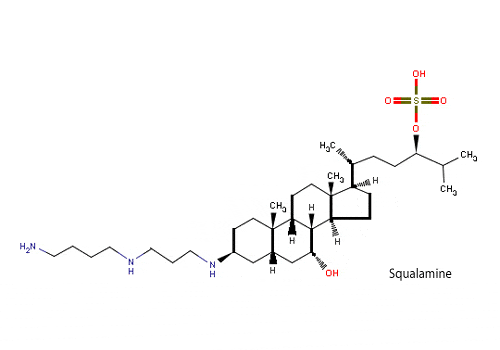
Squalamine works its magic by interrupting the life cycle of viruses, preventing it from replicating. Currently, the compound is known to block viral infections such as such as dengue fever and hepatitis, both very hard to treat for humans.
“It’s a whole new approach to treatment of viral disease,” said study leader Michael Zasloff, of the Georgetown University Medical Center.
“It’s very possible we could cure several diseases we [now] treat as chronic infections.”
Zasloff was initially looking for anti-bacterial agents in sharks, before he eventually stumbled across the miracle squalamine. He soon found that it actually inhibits the growth of blood vessels, suggesting the molecule could potentially stop cancer cells from multiplying. Squalamine molecules stick to a cell’s membrane, and in the process disrupts positively charged proteins initially in place on the membrane. When a virus invades, it needs those protein to reproduce, without them it dies.
“There is no other compound known to science that does this—this is a remarkable property,” Zasloff said.
The shark’s “antiviral defenses have been extraordinary,” Zasloff said. “It has adapted a very remarkable immune system and stayed with

Squalamine might treat terrible diseases in humans
Tests revealed that squalamine thwarted infection of the dengue fever virus in human blood vessel cells and of hepatitis B and D in human liver cells. The study goes on to claim that squalamine inhibited yellow fever, eastern equine encephalitis virus, and murine cytomegalovirus in lab animals.
The results are incredible and look extremely promising for the development of a squalamine based super-drug in the future. This won’t hold any repercussions back to sharks either, since squalamine has been successfully synthesized since 1995.
Apparently, there are some toxic side effects to the substance when a treatment dose is administered, but further research might render these effects to a safe margin. Cinical trials for the antiviral will begin in people in about a year.
Sharks have been hiding squalamine in their bodies for 700 million years, Zasloff added. “Now it’s a gift to us.”






